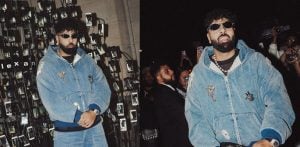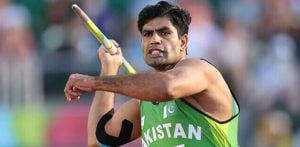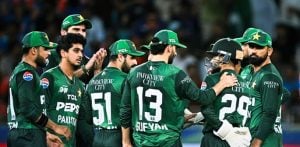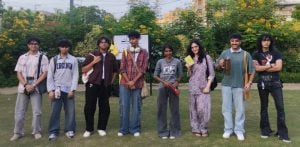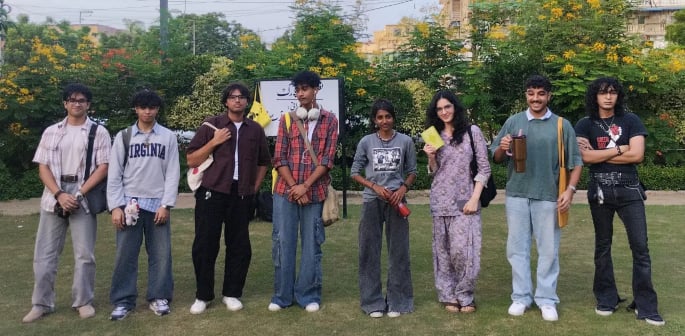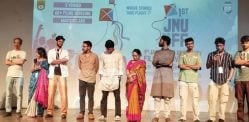"A performative male does not speak much."
Karachi hosted its first-ever ‘Performative Male Competition’, where satire, self-awareness, and spectacle merged in Nusserwanji Park.
The event was jointly organised by filmmaker Shehzad Malik and visual artist Eman Siddiqui, drawing in curious onlookers and participants.
Malik explained that the competition sought to open a conversation around masculinity as a spectrum, spotlighting sensitivity often dismissed in society.
At the same time, he admitted some men take exaggerated performance too far, which is precisely what the contest aimed to parody.
The crowd was small but engaged, witnessing performances ranging from academic references to silent statements and heated debates on consumerism.
The first participant was quickly booed off stage after revealing he knew only one flavour of matcha tea, earning laughs.
Wali, a law student sporting a punk rocker look and a Green Day shirt, won cheers by citing anthropologist Gayle Rubin.
A silent performance followed, with the contestant insisting he only listened because “a performative male does not speak much”.
Later, Ayan clashed with Wali over the symbolic meaning of Labubu dolls, with Ayan proudly displaying his as artistic expression.
The contest concluded with the audience crowning two winners, art student Huda and DJ Zaim, who split their certificates in half.
Huda emphasised that men should be free to express themselves naturally instead of pretending, which she equated to simply “being a poser”.
Zaim described performative masculinity as pretending to dress woke or trendy, often just to win validation without authenticity.
Medical student Aaryan compared the idea to the already popular term “pick me men”, noting overlaps in inauthentic presentations.
He added that most men actually perform for other men through aggressive masculinity, which he argued was even less genuine.
Wali, meanwhile, claimed performative males dressed specifically for the female gaze, a concept that had turned into meme culture.
This meme status allowed many to evade accountability, since the performance could always be brushed off humorously.
Despite the deeper commentary, the atmosphere remained lighthearted, with participants treating the show like cosplay and enjoying themselves.
Events like these, Malik noted, bring an online generation into physical spaces, forcing them to interact and literally touch grass.
Karachi’s debut Performative Male Competition joins similar initiatives in Lahore and Islamabad, reflecting a growing appetite for playful cultural critique.
The event ended with laughter, conversations, and participants lingering long after prizes were shared, blurring parody with authentic connection.



















